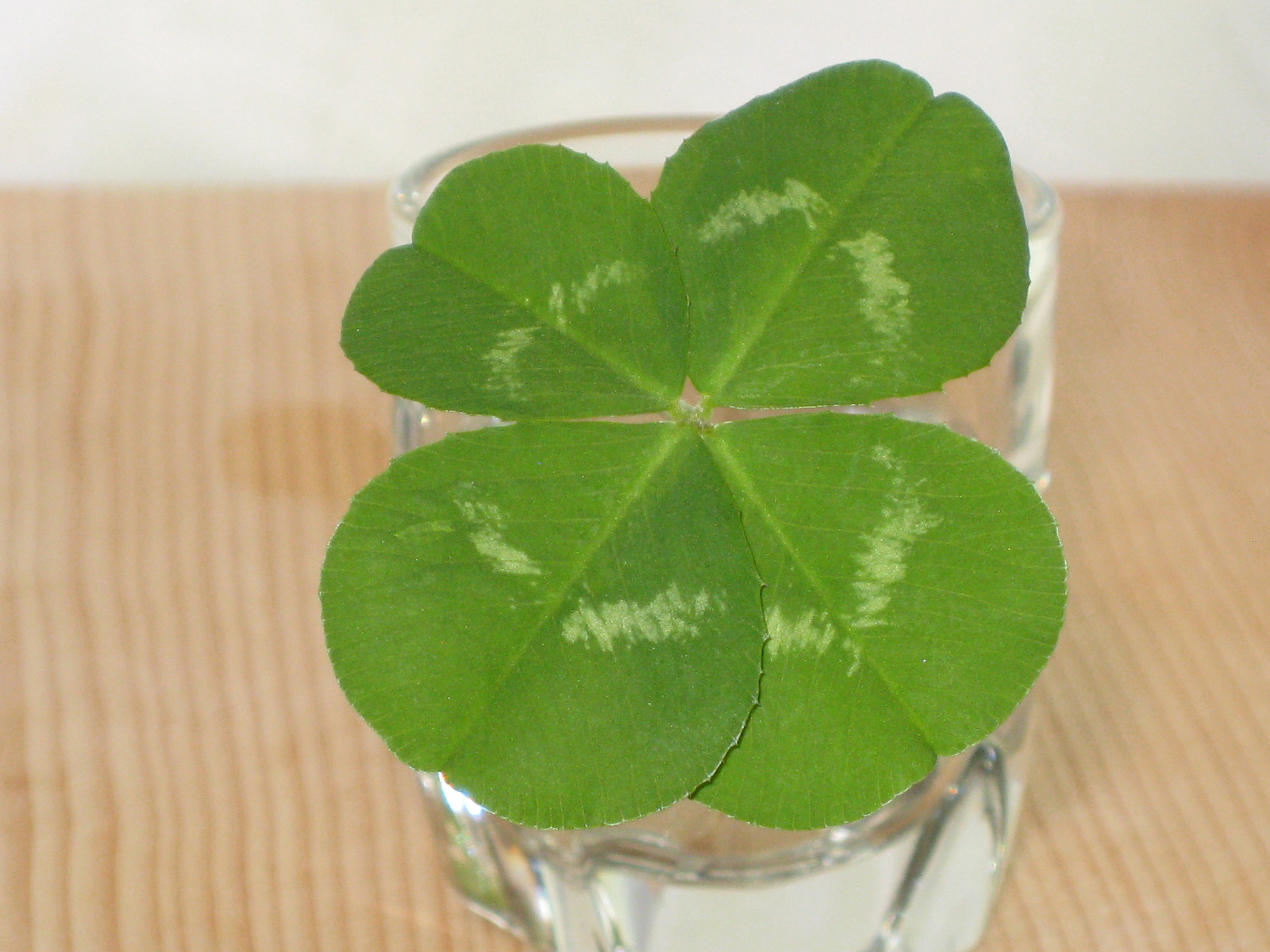Lucky Charms
by David S. Ramsey
"Papa!--I found a four-leaf clover!" our daughter excitedly shared in the genkan, as I came home from Seishin one day last spring.
I smiled, supportive, but not quite convinced. "Wow, really? That's very lucky, indeed. Where did you find it?"
"By the kitchen."
"Ah . . ." Now I grew even more doubtful. She had been looking for four-leaf clovers for the past couple of years everywhere we went: city parks, sidewalks, Seishin Yochien, Korakuen, rice fields and hills in Aichi, strawberry greenhouses in Hamamatsu, the Sky Tree grounds in Tokyo, gardens and yards in California. If she had worked at NASA, she would have programmed the Mars Rover to scout about for green patches of clover on barren terrain some 200 million kilometers from earth. Lots of three-leaf clovers were cropped to become miniature bouquets for the day; they were pretty and cute, after all, even if they didn't have four leaves.
When I went in to the kitchen, my wife also shared the important news: "We found a four-leaf clover today."
I was waiting for her to take me aside and whisper that the little miracle of nature was the result of her carefully cutting one large clover leaf into two, so that it only looked like it had four leaves. Our daughter reached up to the kitchen counter and handed me the long-sought treasure:
"Wow, that's incredible. Look at that." And I did. I kept looking for evidence of playful manipulation, but kept my disbelief rather silent. After my daughter left the kitchen, I lifted the clover up to find where my wife had obviously glued a leaf from another clover on to this one. I couldn't find it: no seam, no glue, no visible cut or patch anywhere. In fact, the very balance and equal spacing of the leaves into a perfect cross pattern bore witness to a simple fact: this was a true and genuine four-leaf clover. "Wait--this looks real."
"Of course it's real," my wife replied, a bit puzzled.
"Where on earth did you find this?"
"Near the kitchen window."
"Hmm . . . well, what do you know . . ."
The next day, it happened again. Same place: right outside our kitchen window.
"That's unbelievable," I offered. "I've never found a four-leaf clover in my entire life, and you find two right here at home, two days in a row."
"We're just really lucky, aren't we," answered my wife.
"And blessed," I sincerely offered. "Did you make some wishes?" I asked our daughter. She had, of course. And she wasn't done making wishes, either.
For a third day in a row, I came home to the news of yet another four-leaf clover they had found, right outside our kitchen window.
And the luck kept rolling in, again and again.
"We can be on TV news!" our daughter bubbled and twinkled.
Yes, I could picture that: "This is Momo Taro, reporting live from Okayama, where a very lucky family has found four-leaf clovers seven days in a row."
The story would be picked up by NHK, go viral, and the next thing you know, we'd have an army of reporters from America, Italy, China, Russia, and elsewhere camped outside of our kitchen window, pretending to cover a story but really looking for their own four-leaf clovers. It would be madness. There'd be pizza boxes and beer bottles everywhere. Dusting off my Ni hao's and Dobro jutro 's, I'd be hard pressed for meaningful engagement and look like an idiot in more languages than I have fingers to count. And toes. Our daughter, only 6, would have to do Oprah, and most certainly Beat Takeshi's weekly news round-up on Saturday night.
Over dinner of stuffed Mexican tortillas slathered with salsa and guacamole, we decided not to contact OHK.
Sorry, Beat.
Sometimes I wonder: did we make the right choice?
In any case, I know that the greatest of fortunes is found right at home.




